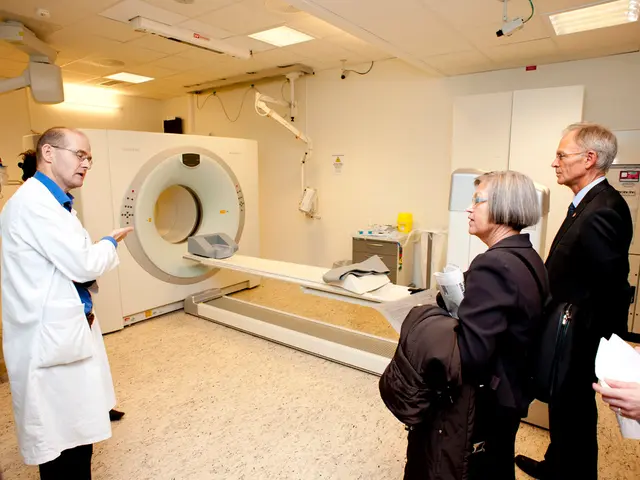Busting Germs: Common Objects and Personal Hygiene for a Germ-Free Life
Dirty Household Items Named by Goryachev
Living in a world teeming with microorganisms can be a bit daunting, but understanding the risks and adopting a few simple habits can help keep you healthy and happy. This guide provides an overview of the everyday objects that collect harmful bacteria and viruses, along with essential personal hygiene practices to stay germ-free.
According to health experts, a myriad of items we encounter daily can unknowingly harbor an array of harmful microorganisms. Alexander Gorachev, a methodologist from the Center for Public Health and Medical Prevention, highlights frequently touched items like light switches, door handles, TV remotes, and kitchen cloths as potential germ hotspots.
But the culprits don't stop there – think about handrails in public transport, payment terminals, and elevator buttons, which can attract a variety of germs, including influenza and those causing gastrointestinal infections.
So, how do these microscopic invaders make their way into our bodies? It all comes down to one simple act – touching infected objects and subsequently touching our faces.
To combat this germ invasion, Gorachev advises keeping kitchen surfaces free from dirty objects and regularly disinfecting our hands and items after contact.
Parents, pay particular attention to children's toys. They are a hotbed for viruses and parasites as kids tend to share them frequently. Regularly cleaning and disinfecting toys, especially those that the little ones put in their mouths, is vital for keeping those germs at bay.
Organizing personal hygiene care is essential in our war against microorganisms. Change underwear and clothing that comes into contact with the body daily, and keep outerwear away from food preparation areas to prevent the spread of pathogens.
To minimize the impact of germs on our hands, wash them six to ten times a day. It's crucial to wash after using the bathroom, before eating, and after contact with animals or when cleaning. Washing for about 20 seconds, removing jewelry, and using paper towels or alcohol wipes for drying are all helpful hygiene practices.
In essence, simple yet conscious steps like regular item disinfection and excellent personal hygiene can significantly reduce the likelihood of getting sick. By adopting these habits, we take care of ourselves and help prevent the spread of diseases.
Behind the Scenes:
Gorachev's research also points out that kitchen sponges and door handles/light switches are common carriers of bacteria, particularly in the kitchen and bathroom areas. Mobile phones and other personal items can also harbor bacteria and viruses. To obtain a more detailed list of germ magnets based on Gorachev's work, it's advisable to consult a microbiologist or a relevant scientific resource.
Society- VKontakte- Classmates- Telegram- Viber- WhatsApp- Copy link
Dmitry Antonov
- To ensure a clean living environment, regularly disinfect items like kitchen cloths, light switches, and door handles, according to Alexander Gorachev from the Center for Public Health and Medical Prevention.
- Handrails in public transport, payment terminals, and elevator buttons can accumulate harmful microorganisms, including influenza and those causing gastrointestinal infections, as mentioned by Gorachev.
- Children's toys are a breeding ground for viruses and parasites, as they are frequently shared among children, as stated by Gorachev.
- Maintaining excellent personal hygiene is essential in our battle against microorganisms, advises Gorachev.
- For effective hand hygiene, wash hands six to ten times a day, and ensure to wash after using the bathroom, before eating, and after contact with animals or during cleaning; remove jewelry, and use paper towels or alcohol wipes for drying.
- Besides everyday objects, mobile phones and other personal items can harbor bacteria and viruses, points out Gorachev's research on common germ carriers.
- Proper nutrition, therapies and treatments, fitness and exercise, mental health, skin conditions, and eye health are essential aspects of overall health and wellness.
- Chronic diseases and respiratory conditions can be managed effectively with suitable therapies and treatments, alongside maintaining a healthy lifestyle with proper nutrition and exercise.
- CBD products, known for their potential health benefits, can be incorporated into a balanced nutrition plan as a dietary supplement, but it's crucial to consult a healthcare professional before use.








